I usually rely on Wolfram Mathematica for this kind of thing, but I've been delving into Python recently and the results are so much better. Basically, I'm looking for numerical solutions for systems like the following.
Well, I know that there are solutions, because Wolfram Mathematica found a single one (0.0858875,0.0116077,-0.156661,1.15917). What I tried to do in Python is this brute force code.
import numpy as np
START = -3
END = 3
STEP = 0.1
for r0 in np.arange(START, END, STEP):
for r1 in np.arange(START, END, STEP):
for r2 in np.arange(START, END, STEP):
for r3 in np.arange(START, END, STEP):
eq0 = r0*r2+r1*r3
eq1 = r0*r1+r1*r2+r2*r3+r0*r3
eq2 = r0**2+r1**2+r2**2+r3**2-4*(r0+r1+r2+r3)**2
if (eq0 == 0 and eq1 < 0 and eq2 < 0):
print(r0, r1, r2, r3)
Edit: I'm okay with things like -0.00001< eq0 < 0.00001 instead of eq1 == 0
Well, although it didn't find solutions in this case, the brute force method went well for other systems I'm dealing with, particularly when there are fewer equations and variables. Starting with four variables, it becomes really difficult.
I'm sorry if I'm asking too much. I'm completely new to Python, so I also don't know if this is actually trivial. Maybe fsolve would be useful? I'm not sure if it works with inequalities. Also, even when the systems I encounter have only equalities, they always have more variables than equations, like this one:
system2:
 .
.
Hence 'fsolve' is not appropriate, right?
